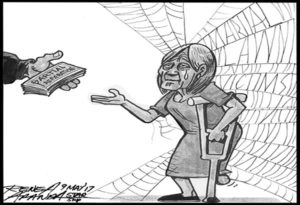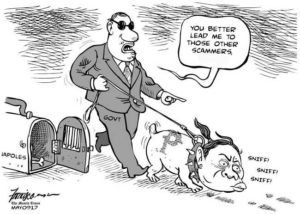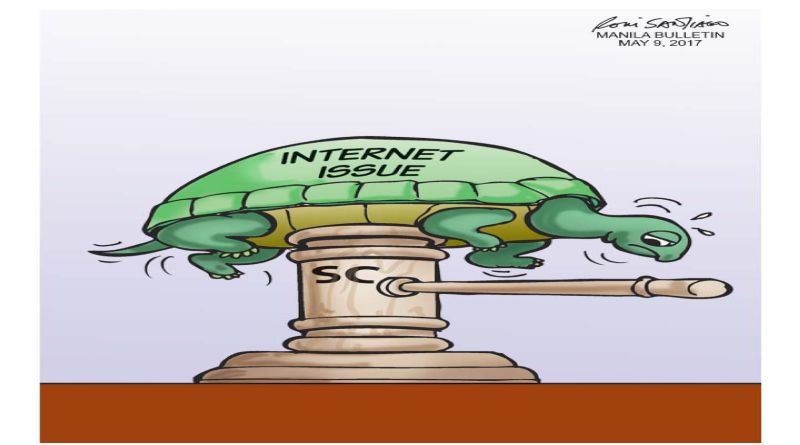Internet issue awaits court ruling
In June, 2016, Internet users complainng of the very slow Internet speed in the Phiippines welcomed the news that the Philippine Long Distance Telephone Co. (PLDT) and Globe Telecom, which run the nation’s two principal systems Smart and Globe, had acquired additional spectrums and frequencies that would enable them to speed up their services considerably.
The two started mobilizing their resources to start using a 700-megahertz frequency they had acquired from San Miguel Corp. (SMC). Internet services in the country should improve in the next 12 months, they said. It was an announcement welcomed by the National Telecommunications Commission which had approved the P69.1-billion deal among PLDT, Globe, and SMC.
That was ten months ago. In these last ten months, the Philippine Competition Commission (PCC), claiming that the deal may have stopped the entry of a third telecom firm, sought to investigate it. The Court of Appeals, through its 12th division, issued a writ of preliminary injunction against the PCC, which then went to the Supreme Court. It asked the high court to dissolve the CA writ of preliminary injunction and to stop the PLDT from proceeding with any action to complete the deal.
This explains why, ten months after the billion-peso deal that would greatly improve Internet services in the country was announced, everything has been put on hold. The deal had been approved by the regulatory agency National Telecommunications Commission, but the Philippine Competition Commission claimed the right to review it.
As in many important issues in recent months, the Supreme Court is now called upon to decide the matter; it will have the final say on this legal issue. We can only voice the hopes of the country’s many Internet users that it act with all possible speed so that the companies concerned can proceed with their promised plans to greatly improve their services.
There are other problems lying in the way of improved Internet services. There is need to simplify the process of getting permits to set up cell sites, for example. The new Department of Information and Communication Technology could focus on this problem.
But the biggest step forward would be made when the two service providers, PLDT and Globe, proceed to make use of the billion-peso asset they were able to acquire ten months ago — and improve the country’s Internet services. The outsourcing industry alone earns $2 billion a month for the country. That’s how important Internet services have become in the economic growth of the country today.














